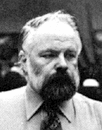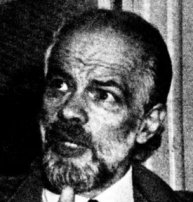|
|
abi. |
|
  |
About the Author From The Shifting Worlds of PKD Philip.K.Dick was born prematurely in Chicago on December 16 1928 with his twin sister Jane. Jane was tragically to die just a few weeks after. The influence of this loss was never forgotten, Jane's death was a dominant part of his life and art. Philip's biographer Lawrence Sutin writes.... The trauma of Jane's Death remained the central event of Phil's psychic life Two years later Philip and his parents Dorothy Grant and Joseph Edgar Dick moved to Berkeley. By this time their marriage had broken down. They divorced in 1932, Philip going with his mother to Washington.
His interest in science fiction waned when he completed high school and left his mother at the age of 18. He continued to live in the intellectual community of Berkeley while working in a record shop. During this period his tastes in reading became more literary. Berkeley and his later home, Marin County, featured prominently in many of his books. After selling several stories to the major pulp sci-fi magazines of the time PKD took the plunge in 1951 and embarked upon a full time writing career. He wrote several novels during the 50's, many of them not science fiction. Most were knocked back. All of his attempts to publish mainstream fiction failed. His first major success came with the publishing of a sci-fi novel called Solar Lottery in 1954. A very prolific science fiction career was thus launched. The high point came when he was awarded the Hugo award for his brilliant novel The Man in the High Castle in 1962. Other writers have said of PKD
Dick quietly produced serious fiction in a popular form and there can be no
greater praise Michael Moorcock In 1948 he began what was to be the first of several failed marriages which total 4 in all. Phil's first attempt at married life was a sham and lasted only six months. His second marraige to Kleo Apostolides was more successful. Although struggling to make a living his time spent with Kleo was happy and romantic. Their decision to move to Point Reyes Station in the late fifties set things in motion for Dick begin an affair with their attactive neighbour Anne. Anne was still getting over the recent death of her husband, with Kleo commutting into work each day, Anne and Phil began to spend time together. It took a short time for Phil to divorce from what had been up until that time a happy marraige with Kleo. The mainstream novel Confessions of A Crap Artist takes its cue from these real life events. PKD's first child Laura Archer was born in 1960 to Anne. PKD's realtionship with Anne was one of love and hate. Many destructive and negative female characters found in PKD's books are based on Anne. These include Fay in Confessions of a Crap Artist, Priz in We Can Build You, and Kathy in Now Wait For Last Year. Phil gradually developed an unhealthy paranoia about Anne. He convinced himself that Anne had killed her last husband and was planning the same fate for him. Despite this paranoia and animosity Anne helped PKD begin one of his most prolific and inspired periods of writing. The Award winning Man in the High Castle and the brilliant Martian Time Slip and 3 Stigamata were written during this period. Retreating into a small hut which he rented from the local sherriff to get away from the distractions of home PKD churned out 11 sci-fi novels between 1963-1964. Eventually in 1964 Anne and Phil divorced. Moving back to San Francisco Phil in 1964 also experienced his first trip of LSD with fellow writers Jack Newkon and Ray Nelson. Like many people during the sixties Phil experimented with a range of drugs, but the greatest influence and the source of many of his marital failures was due to his growing addiction to amphetamines. For an excellent book based around a junkies lifestyle see his novel A Scanner Darkly. Eventually this addiction led him to several breakdowns in the 1960's, his addiction also resulted in his fourth wife Nancy Hackett leaving him. Phil had married Nancy in 1966. She was over ten years younger than him, but they were deeply in love. PKD's second child Isa was born in 1966 to Nancy.
In the mid 1970's PKD also had several religious experiences which were to occupy him intellectually, and spiritually, for the rest of his life.For several years Philip wrote an Exegesis containing all his wild thoughts and theories about the 2-3-74 experiences. These experiences dominated PKD's life and became the focus of all his novels from that point on. His attempts to understand 2-3-74 are best understood by reading VALIS In 1982 Philip.K.Dick died of heart failure at the age of 53, leaving an unfinished book and without a doubt many ideas left hanging in the air. He also missed the release of the first PKD movie adaptation Blade Runner.
This biography is brief and is in a large part simply a summary of Lawrence Sutin's superb biography titled Divine Invasions, a life of PKD. This book is one of the best biographies you will ever read. Sutin reveals intimate details about PKD's life and discusses all of the major PKD novels and stories.  I met Phil about two years before his death. We met twice and corresponded about three times, and then he was gone. I wish I had seen a lot more of him. He was a fascinating person - just like his books, and he got more like his books as he got older. Phil lived in many realities. |
additional reading an article another article |
|
|
abi.. |
|